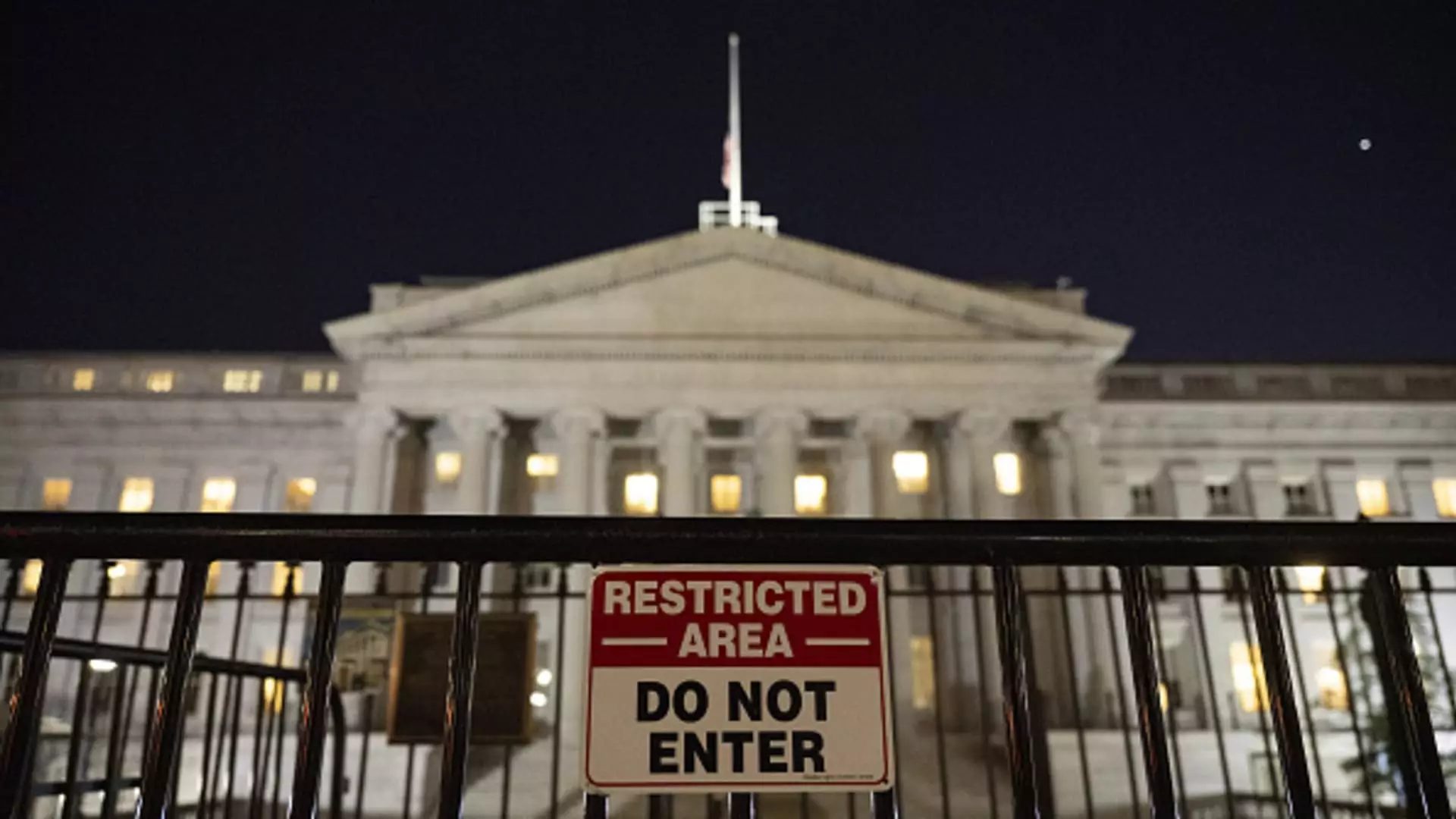Recent reports have unveiled a significant breach of cybersecurity involving the U.S. Treasury Department, particularly affecting its Office of Foreign Assets Control (OFAC) and the Office of Financial Research. The Washington Post detailed how Chinese government-affiliated hackers gained unauthorized access to these critical offices, alongside targeting Treasury Secretary Janet Yellen’s office. This incident, categorized as a “major incident” by the Treasury, raises pressing questions regarding national security and international relations amidst escalating tensions between the U.S. and China.
The oft-volatile relationship between the United States and China serves as a backdrop for this cyberattack. By infiltrating key financial institutions within the U.S. Treasury, hackers appear to be gathering intelligence on potential U.S. sanctions aimed at Chinese entities. Notably, sanctions have emerged as a crucial mechanism for the U.S. in its foreign policy arsenal against perceived threats from China. As Washington deliberates further financial restrictions, the importance of cybersecurity cannot be overstated. The stolen unclassified documents may provide insight into the U.S. government’s ongoing strategic discussions, thereby offering the Chinese government a tactical advantage in the geopolitical chess game.
In the wake of these revelations, official responses have been diverse. Liu Pengyu, spokesperson for the Chinese Embassy in Washington, characterized the claims as “irrational” and devoid of factual grounding. This denial reflects a broader strategy of deflecting allegations while simultaneously underscoring China’s commitment to combat cyberattacks. Nevertheless, such assertions contradict the increasing body of evidence suggesting state-sponsored cyber activities aimed at espionage and information theft. The Chinese government’s dismissive remarks highlight the ongoing narrative battle as both countries attempt to shape public perception amidst growing scrutiny.
The Role of Third-Party Cybersecurity Providers
Compounding the severity of the breach is the compromise of BeyondTrust, a third-party cybersecurity vendor. This incident exemplifies the vulnerabilities inherent in outsourcing cybersecurity measures to external firms. Cybersecurity is a double-edged sword; while engaging third-party services can enhance capabilities, it also opens channels for risk. The challenge lies in ensuring that these providers adhere to stringent security standards to mitigate exposure to external threats. As cyber threats evolve, the need for robust partnerships in cybersecurity becomes even more urgent.
As tensions fractionate further, the U.S. must reevaluate its cybersecurity strategies to insulate sensitive governmental operations from foreign threats. This breach serves as a clarion call to bolster defenses, heighten awareness among federal agencies, and invest in advanced security protocols. The implications extend beyond governmental boundaries; businesses, especially those connected to critical infrastructure or sensitive information, must take proactive measures to safeguard themselves. The cyber domain has become a new frontier in international relations, where defensive postures can no longer be taken for granted.
This breach not only underscores the frailty of cybersecurity in high-stakes environments but also emphasizes the urgent need for redefined strategies in a landscape where cooperation and conflict coexist. The U.S. and China must navigate this precarious balance with heightened awareness and strategic foresight, recognizing that the digital realm can significantly alter the power dynamics of modern diplomacy.

